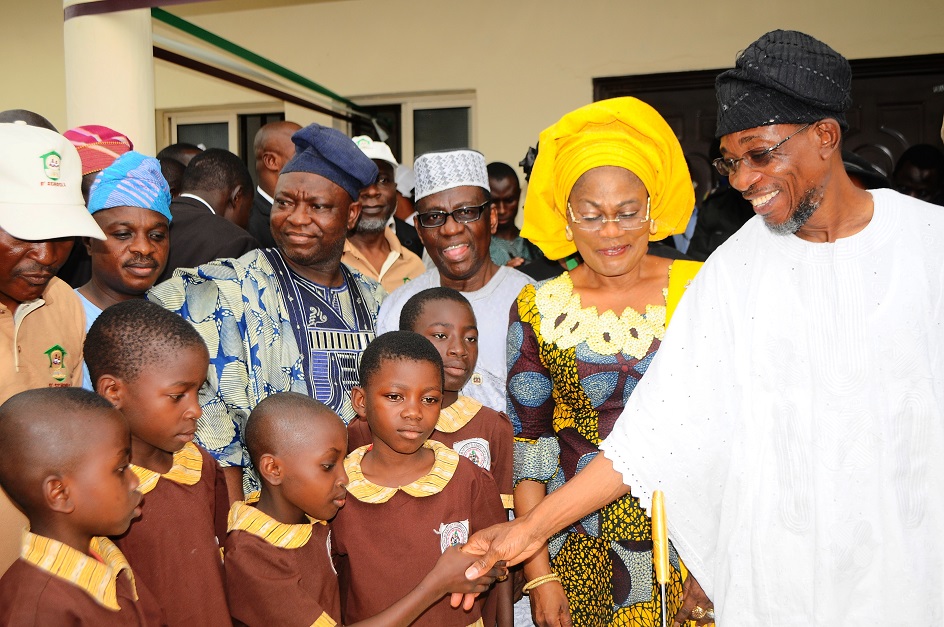
Osun: Reclassification’s Not Only About Building Schools — Oyetundan

OTUNBA Lai Oyetundan is the chairman Osun State Schools Infrastructure Development Committee. In this interview, he speaks on the controversy trailing the policy and the impact it has made so far. Excerpts:
WOULD you say the reclassification programme has addressed the perceived ills in the education sector in Osun state?
The reclassification is one of the series of policy options adopted by the government to address perceived ills. There are so many aspects to the ills. To a group of people who needed quality education, what we had was non existent, the system had been left to rot and the result of course, reflected the rot. We were not getting satisfactory results.
Results from internal and external exams, indicated less than three percent pass rate. That cannot be acceptable and could not have been ignored by any responsible government. What to do therefore, depends on policy options adopted by the government to revamp the sector. What we call reclassification is a matter of a way to address the pupils report in the morning for their schooling.
What we have done with the reclassification is to reclassify the students into three broad age groups, which are the elementary group, middle school and the final year of secondary education. That is the totality of reclassification. How does that age grouping affect anybody? It does not offend anybody because it has scientific background and rationale.
Do you really need reclassification to reform the sector?
Do we really need to do anything at all? Should we have left it the way it was and continue to do the maintenance approach that we said had not been yielding the same result? Don’t forget that reclassification is just one of several things we are doing but it underlines a broad scope of the measures we have taken.
The research and consultations left us with very little options than a very drastic approach to do what we are doing. We are not just building schools. We first of all addressed the needs of the pupils, who have become disinterested in schooling.
They had become disillusioned and their moral had gone so far down that going to school was not just as important as we took it in our time. We had to motivate the students. Again, you must realize the environment which we are operating.
So, you cannot look at what we are doing in isolation but through a spectrum of a responsible government and a leadership that has demonstrated keen interest in the welfare of the man on the street. The children’s needs were addressed, we gave them uniforms free of charge. We also fed them which cost the state government N2 billion annually. These were actions taken.
In looking at what we are doing, it is a sectoral approach that is meant to remove those clips in the smoothness of the system. If the student is motivated and is prepared to learn, if the teacher is motivated and he or she is prepared to teach, what of the environment?
The environment we had, was a scandal. When teachers leave school by 2 pm, the environment is taken over by the undesirables. It was totally unacceptable. So we needed to do something about the environment too, so that all the ingredients and elements of the system will be addressed. That is the rational behind it.
So far would you say the impact has been felt?
We must understand the depth of what has been happening and it does not just happen over night because the rot we are talking about did not just happen over night, it was a negative decline over time. What this government has done is to address the society and not just education.
Already, performance has gone up from less than five per cent to well over 45 percent in just two years of addressing the education sector but it is bound to improve further. The objective of what we are doing is to transform our school system to conform with modern thinking and rank among the best in class and international best practices.
How far has the State government gone in dialoging with or convincing those opposed to this school reclassification programme?
Change is always accompanied with some elements of opposition even from those who will benefit from the change because of the latent fear of what change portends.
We recognise this and apart from those with vested interest, is there any rational for anybody to oppose the reclassification programme? Let us be fair to ourselves, there is really no opposition to reclassification. The churches are not opposed to it, the mosques are not opposed to it, the teachers are not opposed to it and our people are not opposed to it.
But there are those who must have something to flog for their own selfish political reasons. We know they exist but I am more concerned about the larger society that has adopted it.
The change we are looking at is a systemic change, it does not stay in one place because we will continue to tinker with the system all the time. We have said that we want our system to conform with modern thinking.
VANGUARD



